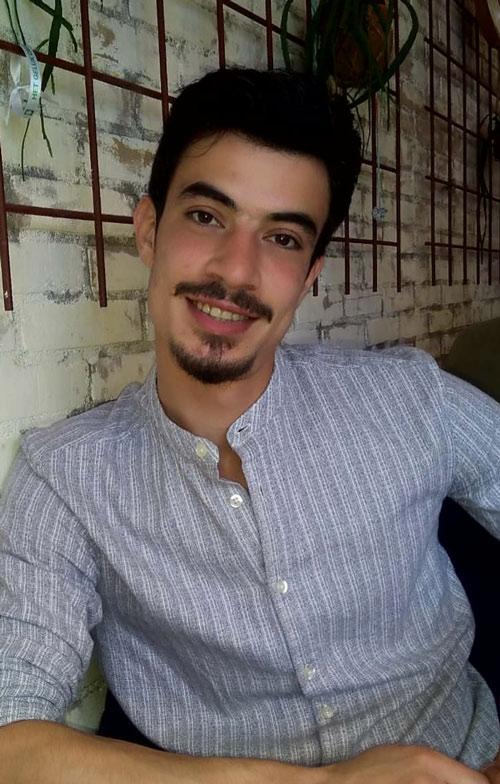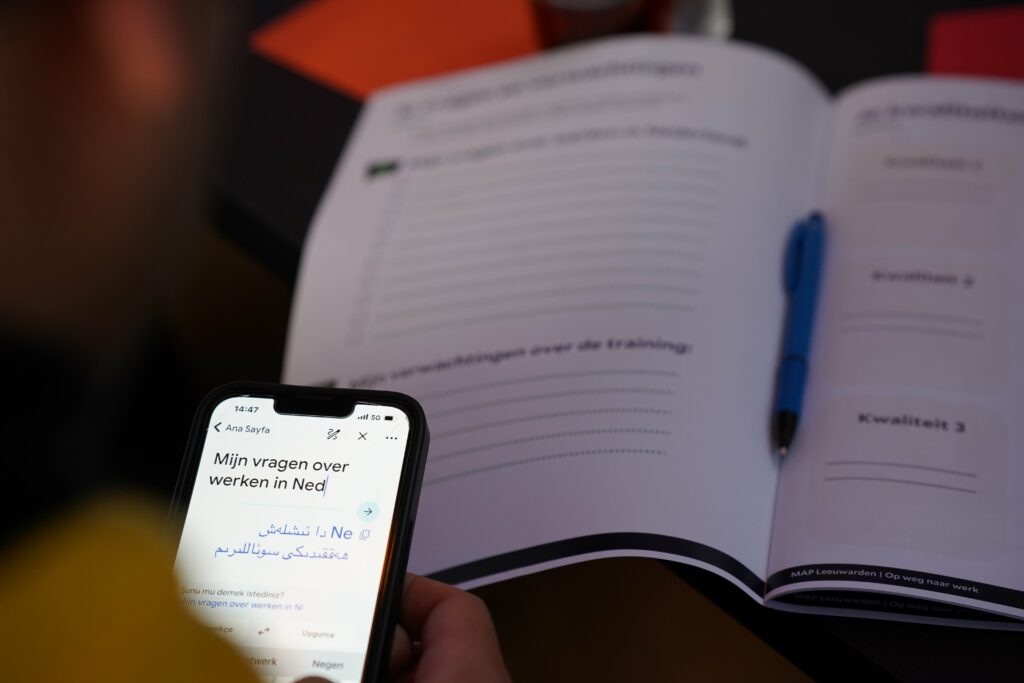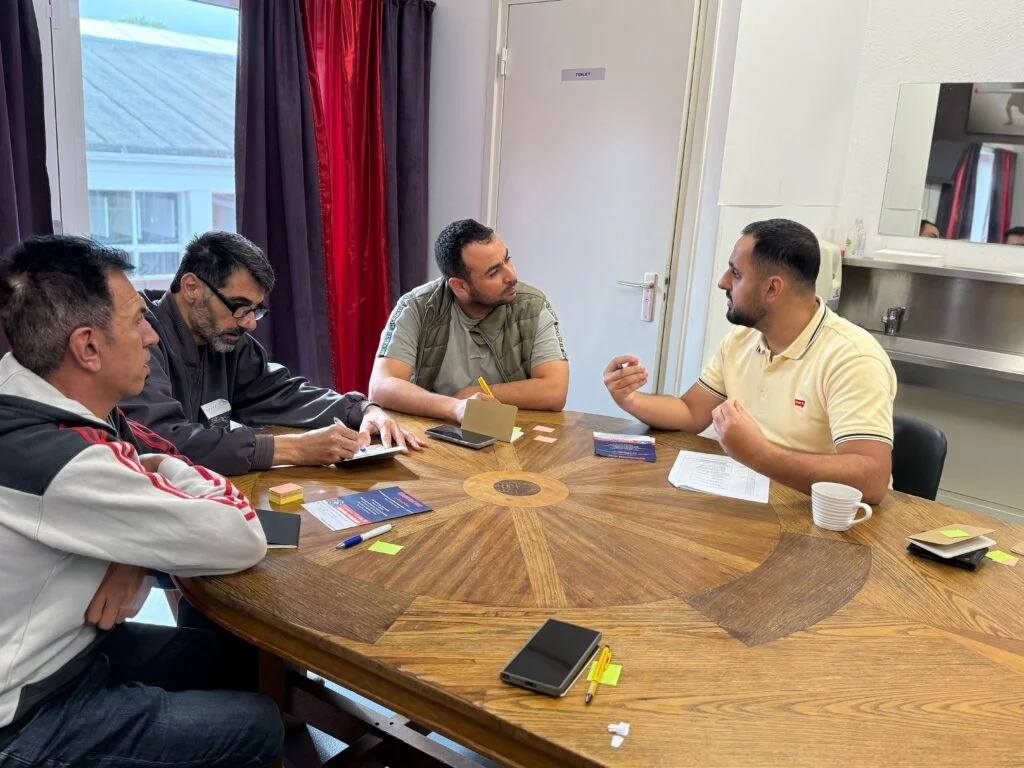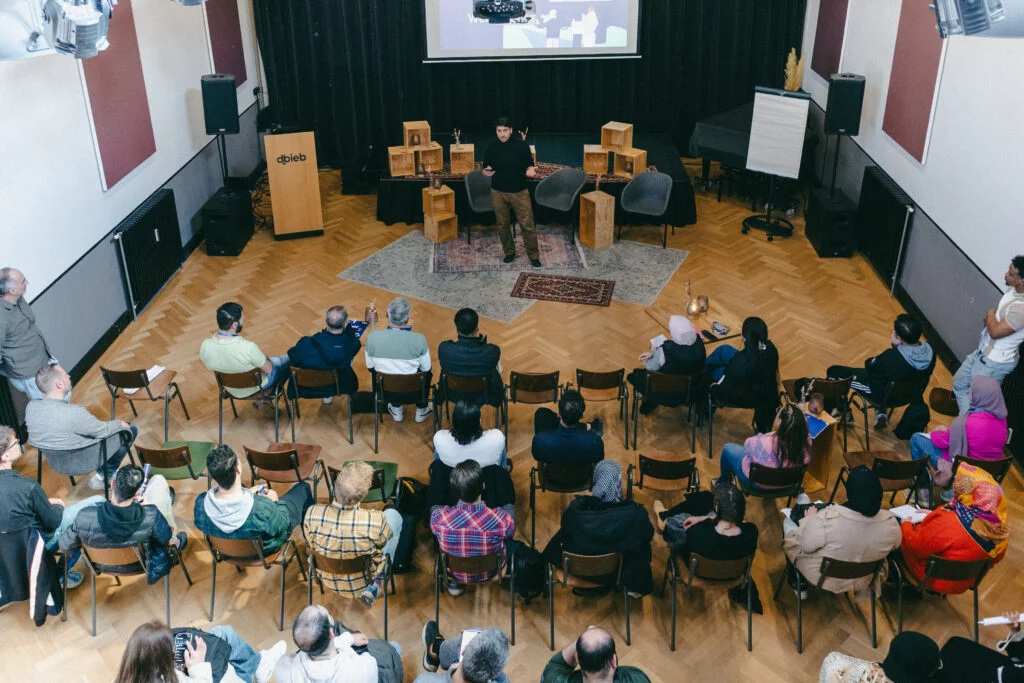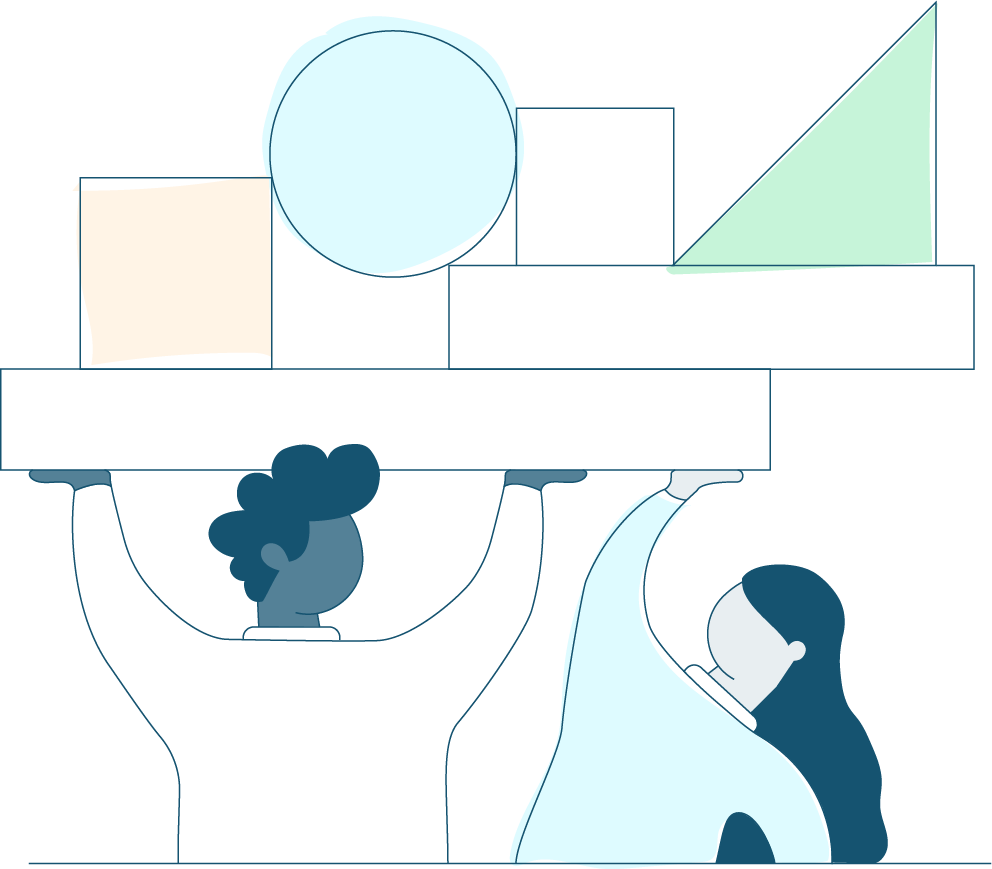Mohamad Almarawi came to the Netherlands from Damascus, Syria at the age of twenty-two. He is now twenty-six and works as an installation engineer at HeatTransformers. We spoke to him about making a fresh start and what it's like to suddenly find himself back at the bottom of the training ladder in the Netherlands as an almost graduated construction engineer in Damascus.
What did you expect from your new life in the Netherlands?
I thought I would live a comfortable life, that I could just continue my studies as I had in Syria. I was studying architecture at the university there. I had two more subjects to complete and then I would get my degree. When I came to the Netherlands, I noticed that I had a lot of competition; the best structural engineers are from the Netherlands and they all studied at TU Delft. You really have to fight for what you want here, I didn't expect that. I had figured out beforehand the steps I needed to take, but I thought each step would be a little easier. At one point I really had to rethink what I wanted.
And then you started looking for work. How did that go?
The first year was really hard. You have to figure out all over again what you have to do to find work. And when I saw something interesting, I often didn't dare call or email because I didn't speak the language well yet. When I was looking for work in construction, I was invited for several interviews, but ultimately not hired because of the language barrier. During the interviews, I often couldn't understand what I was saying or what was being asked.
Then what did you do?
I went out of my way to learn Dutch. Especially doing volunteer work was really super. I could learn the language in a very quiet way and ask all my questions. I also often went to a language café or to church, to meet new people. Through Refugee Council I met someone who later became a friend. We often met in town for drinks and later I was invited to his home. He also introduced me to his friends, so that's also how I got to know more people I could practice the language with.
Through a friend, at some point I heard about a short training program to become an installation technician. I sent an email and immediately got an enthusiastic response back. I went for an interview and was accepted into the program. It lasted three months. I was given theory, practice and the opportunity to get my VCA. In addition, I was given a course in communication.
What did that course entail?
It was a training at college level. It focused mainly on how to apply for a job in the Netherlands and how to conduct a job interview with an employer. But we also learned how to find out what you are good at.
And what are you good at?
Planning! I actually didn't expect that. I always thought that I mainly wanted to work with materials and work independently. But during the course I discovered that I enjoy working with people, that I like to plan and that I would like to supervise other people in the future. As a project leader, for example. I also discovered more about myself. I told them, for example, that I am very stubborn: if something doesn't work, I keep going until it works. During the course, they said that I am not stubborn, but a go-getter. So what I described as negative, they changed into something positive. I liked that.
And now you work at HeatTransformers. How did you get there?
After I finished my education, I updated my resume and sent letters to installation companies again. HeatTransformers invited me for an interview. My language was still not very good at that time, something they also said during the interview. Fortunately, I was hired. I am still working under supervision now, but I am working on getting all kinds of certificates so that I can officially become an installation technician. I have been working at HeatTransformers for nine months now and my Dutch has improved a lot. I work five days a week, so I'm really speaking Dutch all week. And I practice a lot with colleagues and clients, then you progress quickly. I have really great colleagues. They are all Dutch and have really taught me a lot. Also about things on the shop floor.
Such as?
Some things are different in Holland than in Syria. There I was always very modest at work. In Syria a lot is decided by your boss and you usually get direct orders. Here you have much more space to come up with your own ideas, but you also have much more responsibility. That takes some getting used to. I also have to learn to speak my mind. You really have to dare to speak up.
Do you have any other tips for newcomers eager to get started?
The most important thing is that you learn the language, meet people and make contact. And you should really dare to speak, even if you don't have a perfect command of the language yet. Just do it, then you really learn. It is also important to be flexible. In the beginning, my attitude was, 'This is me, this is how I work and this is how I am.' Now I try to adapt much more, even in the workplace. In addition, you have to be flexible in finding a job. Don't just look at the work or education you did in your home country. You are new to the Netherlands, so reorient yourself. After all, you can switch professions. When I switched from construction engineering to installation engineering, it suddenly offered me many more opportunities. I also looked a lot on the Internet, where you can find all the information you need.
You are highly educated and know how to use the Internet. How can people who are illiterate, for example, handle it?
Good question! A friend of mine speaks Arabic, but cannot read and write in Arabic. So for him it is very difficult to find explanations on the Internet. As a result, he has far fewer options than I do. So it's important that he can get to work as soon as possible so that he can start speaking Dutch. Then people can explain things to him. That way he could learn a lot. Even though he is illiterate, he can work very well.
What is your dream for the future?
I would like to get a college degree, preferably in mechanical engineering. That course takes four years. I applied to UAF and am currently on the waiting list, but I hope to start in February. And in the meantime, I can call an 06 number or go to a study abroad office if I need more information. Ideally, I would like to combine working and studying and eventually start my own project. Or do the work I'm doing now at a higher level, for example as a project leader. Starting up in Holland was a lot less easy than I had thought, but one expectation did come true: if I do well, I will get something good in return. And that's also what happened.Don't just look at the work or education you did in your home country. You are new to the Netherlands, so reorient yourself. After all, you can switch professions.
